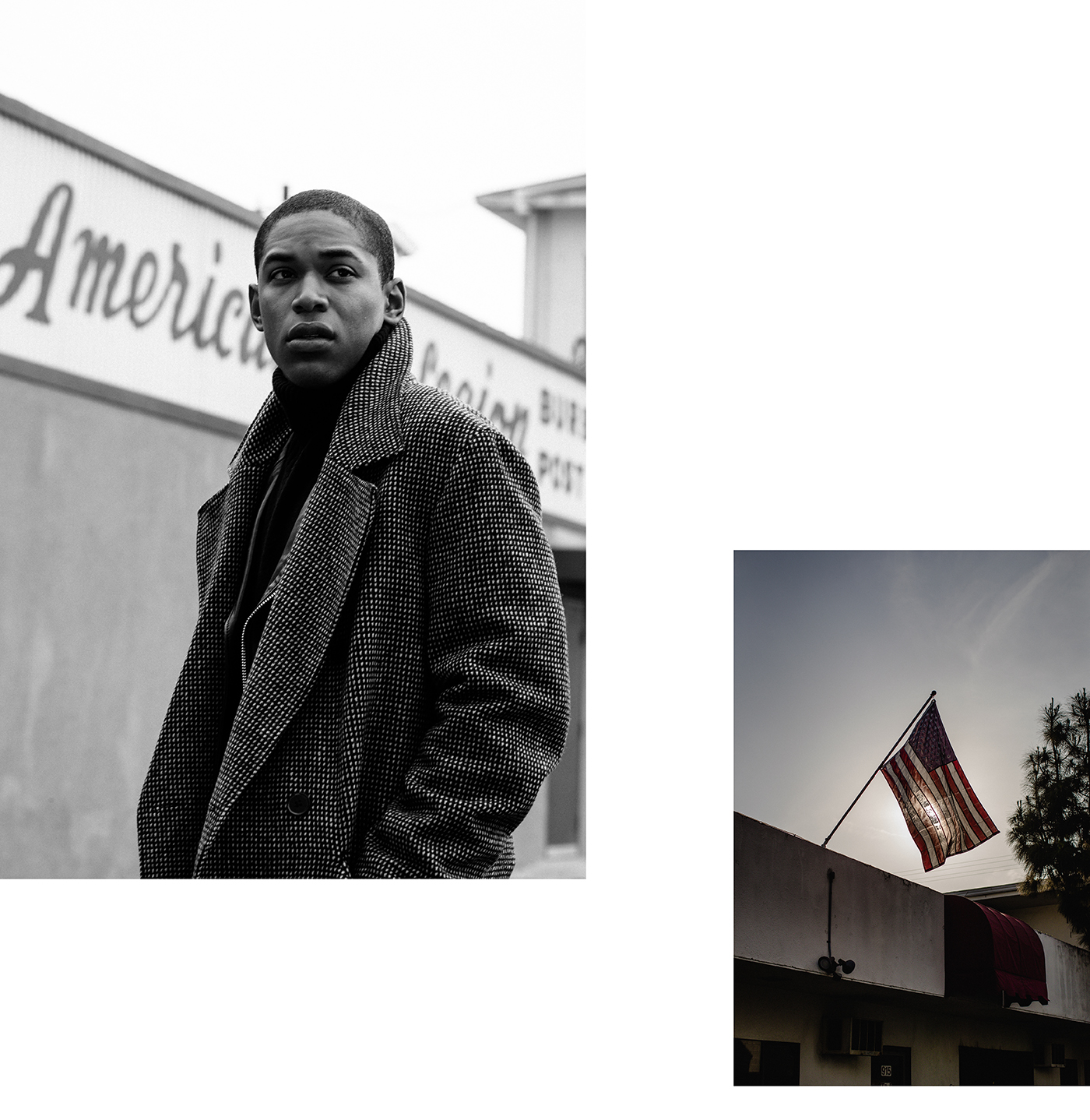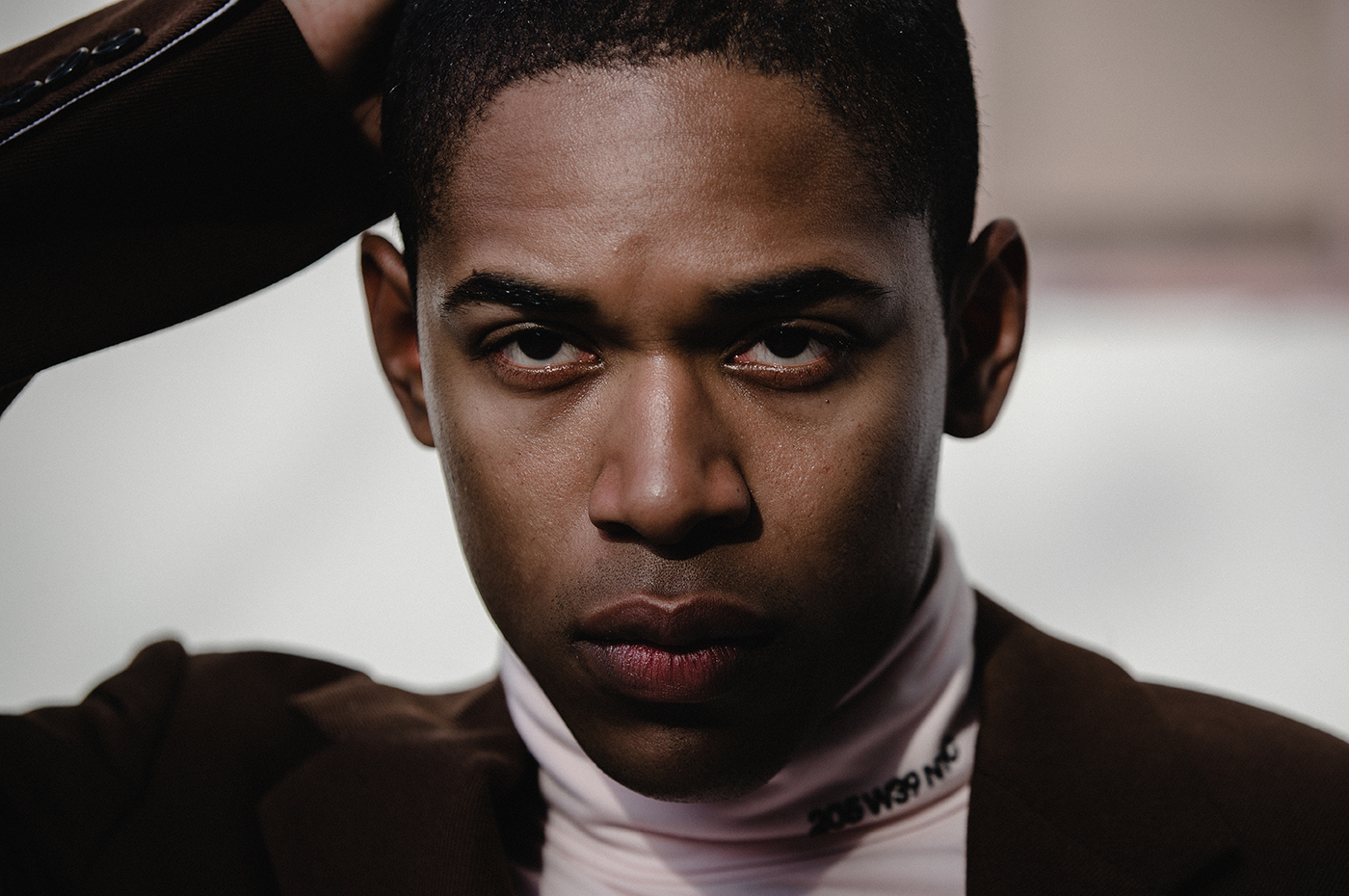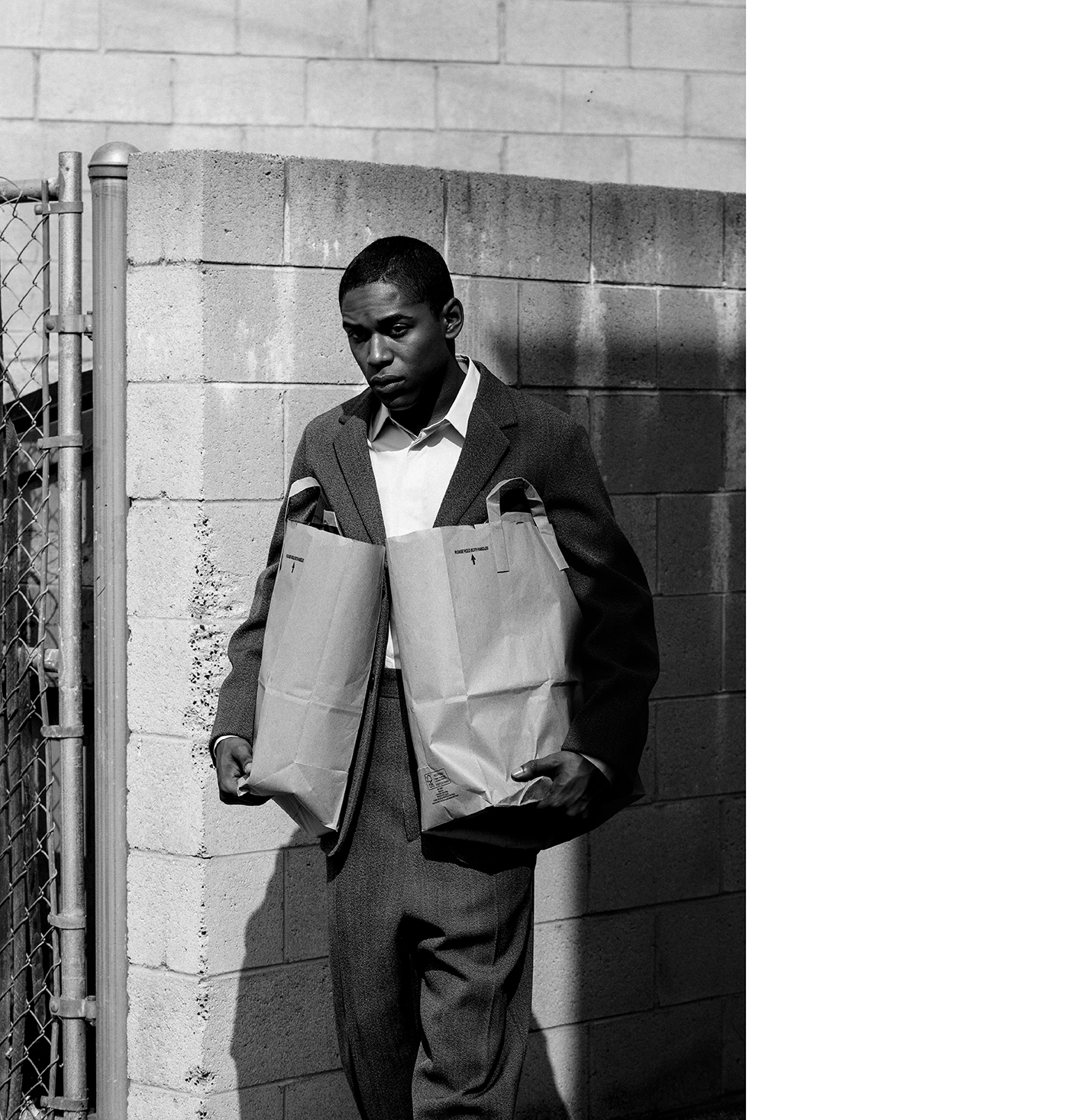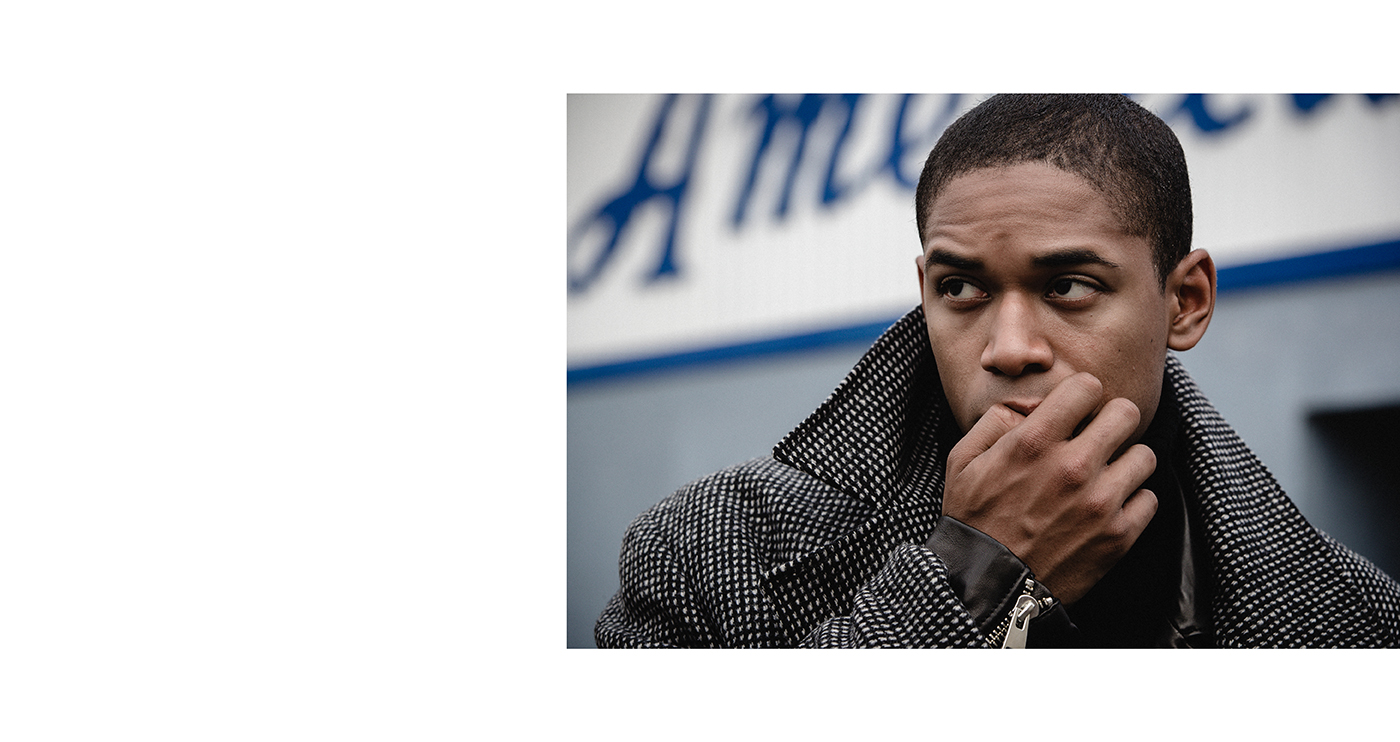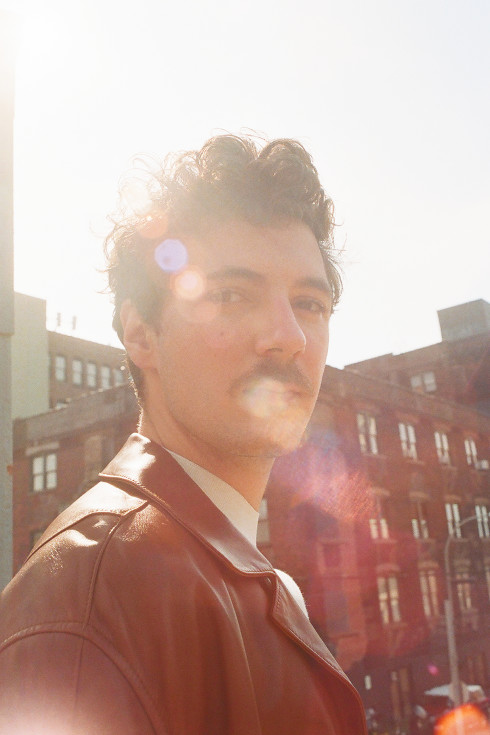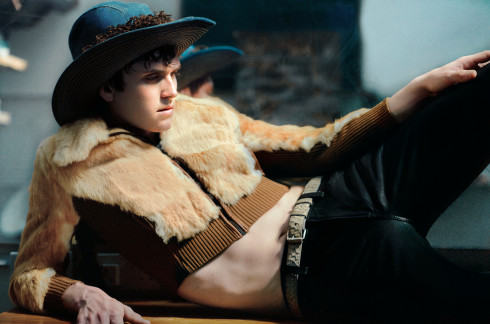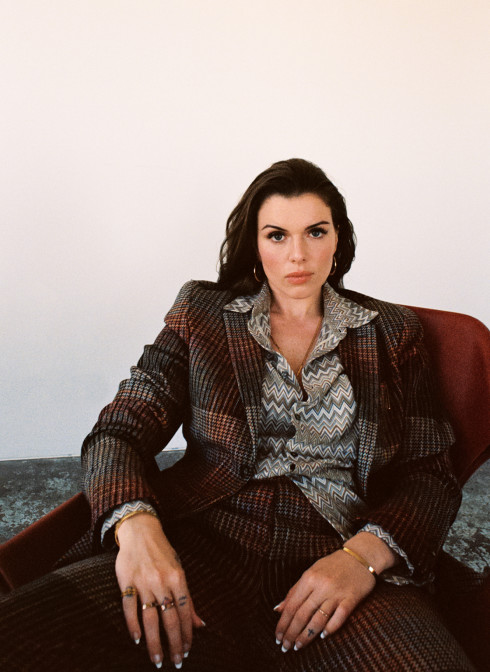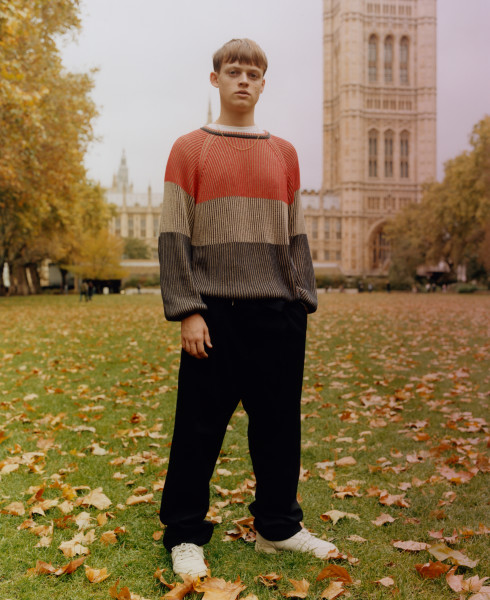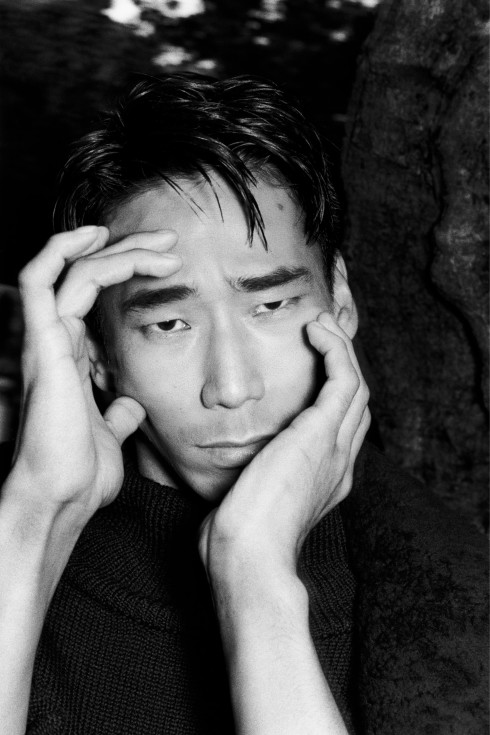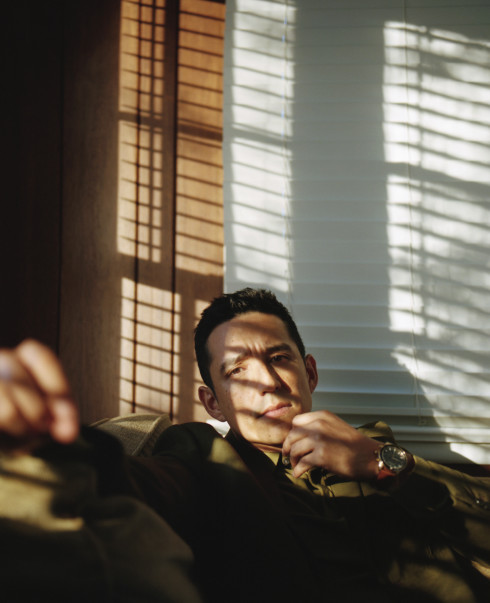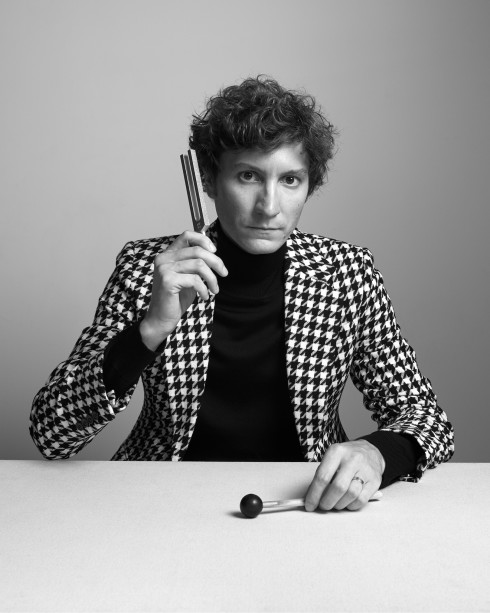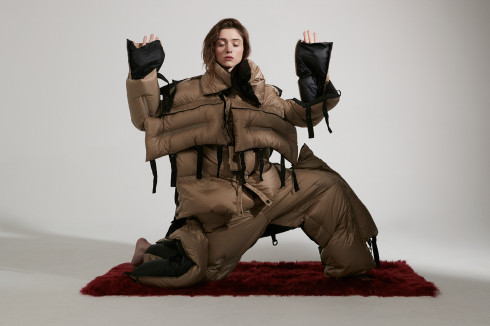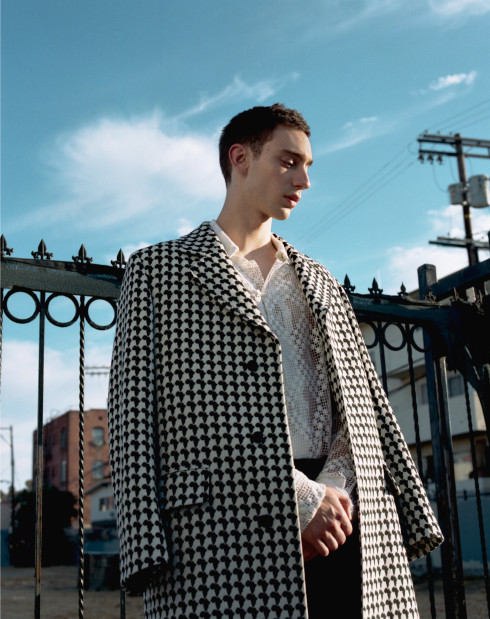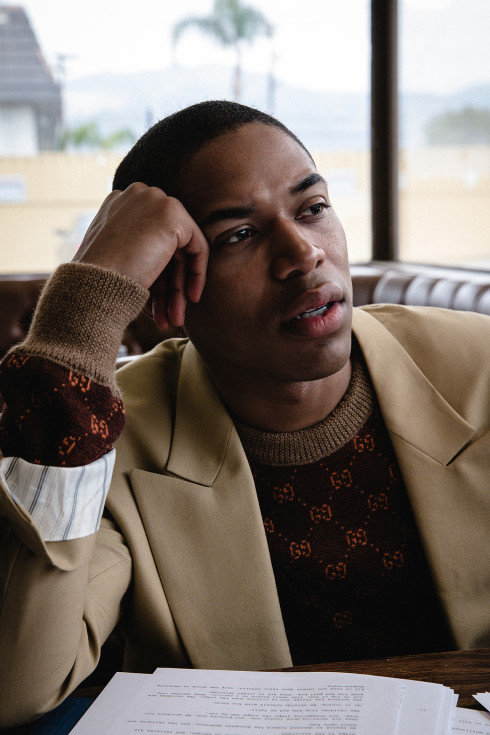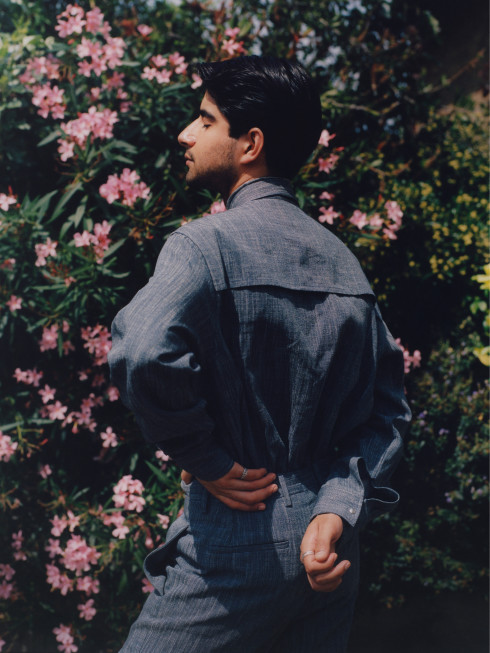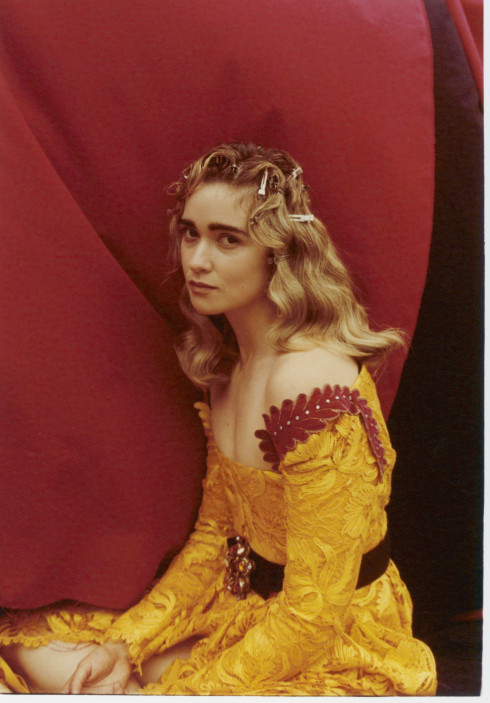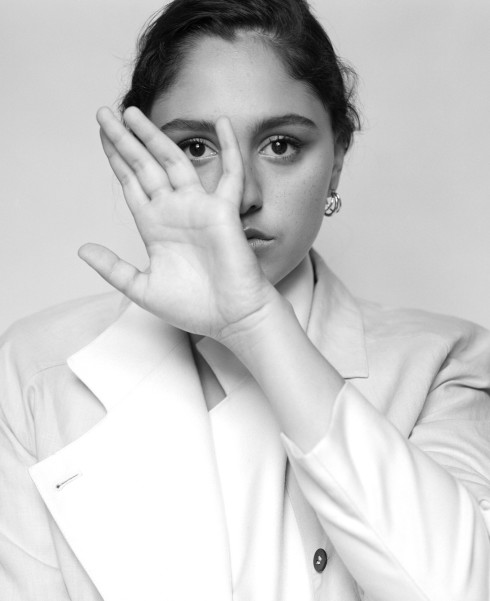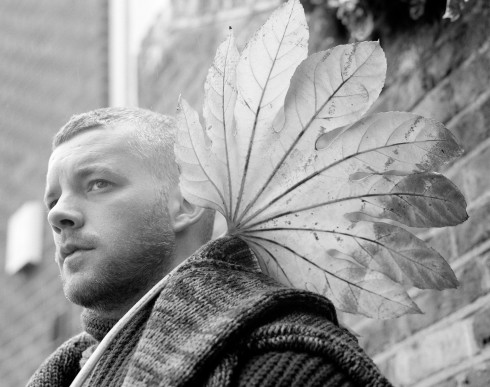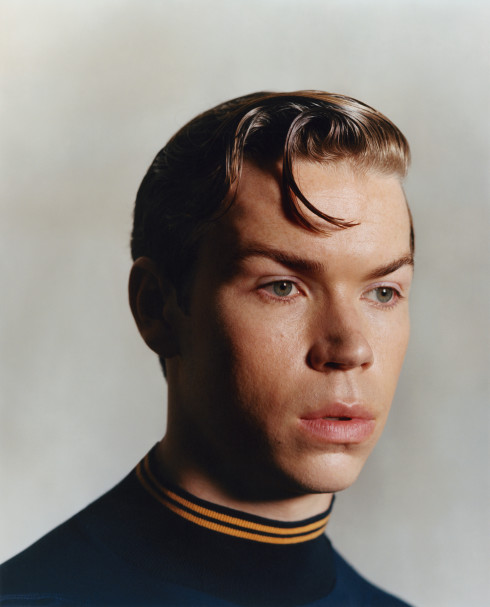
All clothing by Gucci.
- By
- Gautam Balasundar
- Photography by
- Alex Antitch
Styling by Julie Ragolia at Lalaland Artists. Grooming by Mira Chai Hyde at The Wall Group. Photographer’s assistant: Fred Jacobs. Stylist’s assistant: Raina Silberstein.
KELVIN HARRISON JR IS ACTING TO FIND HIMSELF
In the new film Monsters and Men, there’s a tense scene in which Kelvin Harrison Jr.’s character Zyrick is randomly stopped and searched by the police. In an instant, feelings of fear and then resignation flash in the teenager’s eyes, made palpable by Harrison’s earnest and evocative expression. That moment of recognition is pivotal to the movie, marking a shift in Zyrick, one which parallels Harrison’s own personal transformation through the course of his work.
Harrison was raised in New Orleans by musician parents who encouraged him to take the same path, but he was a natural actor. His mother and father like to remind him of his early promise by showing him home videos from his childhood, but back then, performing in public still terrified him and became something he had to overcome. “When I started realizing it wasn’t so much about me—once I realized it wasn’t about Kelvin being Kelvin in front of people—and it was more about me channeling whatever story I was telling, whatever narrative I was trying to portray, it became less intimidating,” he recalls. As a teenager, he auditioned for a non-speaking part in Ender’s Game, but when he landed a speaking role instead, acting professionally suddenly became a viable option.
His breakout came last year in the post-apocalyptic horror thriller It Comes At Night, earning a Gotham Award nomination for his work opposite Joel Edgerton, Carmen Ejogo, and Christopher Abbott, but it’s Monsters and Men that offers his most nuanced performance yet as a taciturn teenager coming to terms with racial injustice. The film is a quietly intense portrayal of three perspectives on the fatal shooting of an unarmed black man by the police, each with its own ties to the catalytic event. Zyrick is a reserved seventeen-year-old baseball prospect in training for the majors just blocks away from the altercation. After he is stopped by the same cops who were present at the shooting, he begins to feel the weight of racial bias, unsure how to respond. He watches the video of the incident repeatedly, desperate to satisfy his resolve for change, and eventually gravitates towards a group of impassioned activists. “Reading that script, I [considered how] I always thought I was doing something wrong if I wasn’t overly aware, if I wasn’t being active,” he says, considering some of the same questions about responsibility the characters are forced to confront.
The film never o ers clear answers, but rather depicts the complexity of being a bystander or a cop or just a neighborhood resident when a similar event occurs and the natural human responses everyone is forced to grapple with. “There’s no right or wrong way to participate in the conversation,” Harrison says about the insights he gained from the film. “If you want to go to a protest, go to a protest. If you want to make movies about it, make movies about it. If you want to talk about it on Twitter, talk about it on Twitter. A lot of my prep for that movie was more so me trying to discover in my life and my professional life and in the character’s life that there’s so many openings and avenues to participate in these conversations and be an activist in your own way, defending your humanity.”
Monsters and Men proved to be a liberating experience for Harrison, allowing him to explore the nuances of persecution and accept that there isn’t always a clear solution and that everyone experiences his own uncertainty regardless of his race or position in society. “This film clarified and validated my experience and it’s going to do that for a lot of other people,” he says. “It’s going to validate that they’re not alone in their stance and the internal conflict that’s very much spread out across the world right now.” Figuring out how to respond as a black man to a country rife with racial conflict gained importance to Harrison over the course of filming, but it wasn’t his first experience with using his roles to search for understanding.
Before Monsters and Men, he had parts in a string of dramas—12 Years a Slave, Mudbound, The Birth of a Nation, and the upcoming Monster—all with a central theme of race in America. Of these, Monster, which premiered at Sundance earlier this year alongside Monsters and Men as well as his film Assassination Nation, was the most vital to affecting Harrison’s reflections on himself and the world around him as he took on the role of a seventeen-year-old honor student put on trial in connection with an armed robbery and whose character quickly becomes painted as villainous. Harrison was drawn to the role because of the way it portrayed a black man—intelligent, introverted, and sensitive, a rarity in Hollywood films. It became an exploration into black identity, both his own and in society at large, but it was only the beginning. “There’s an awareness of this, and reading the script and the book and understanding the situation on trial was the first step of the awakening,” he explains. “But then I finished the movie and I still felt so empty. I was like, ‘I have all this understanding of the unfair position we have as young black men in America right now, but I don’t necessarily know how to offer myself solutions.’ I didn’t know how to cope or to find some way out of this feeling of being unseen and unappreciated.” He was able to channel that intensity into Monsters and Men months later and the conjunction of the two projects proved instrumental to Harrison’s development as an actor bent on examining society’s dark side.
Completing his Sundance trifecta, this month’s Assassination Nation also takes on deeply entrenched cultural issues, depicting sanctimonious male attitudes towards women intensified by the digital age. Harrison takes a backseat to the female protagonists played by Odessa Young, Hari Nef, Suki Waterhouse, and the musician Abra, four high schoolers in a town named Salem where half of the inhabitants get hacked, with their most sordid photos and conversations leaked for everyone to see. Harrison’s character begins as part of their group of friends, but as the men in the town begin to blame the four girls for the hack, he becomes complicit in an increasingly violent response against them. The film is a wild and gripping ride that puts women and their treatment in society—especially when they embrace their sexuality—at the center. It is one of the most talked-about movies of the fall, yet Harrison nearly missed a shot at being in it. “I passed,” he recalls. “I was like, ‘This is scary.’ I passed a few times because I didn’t get it. I didn’t get it until I got in a room with Odessa and Suki and Hari and Abra and Bill Skarsgård and we sat down and everyone read it out loud, and that’s when it made sense to me.” Hearing the women constantly defending themselves from being blamed, marginalized, and attacked resonated with him, and the message became apparent: “We’re a group of people and we’re tired of playing the victim. I refuse to accept your norms.”
Such socially conscious work has proliferated in media and culture of late, but without actors like Harrison who are so invested in the narrative and everything that informs it, it’s easy for the meaning to get lost. Through his expressiveness, it’s clear that his performances are informed by a deep-seated desire to know these characters and the world they live in—and to experience the transformation that comes with the discovery that it isn’t too far off from our own. Harrison’s film choices aren’t intentionally timely; rather, they are simply informed by his own desire to expand his understanding through a focus on storytelling. “I was constantly trying to seek a truth and be honest with myself and didn’t necessarily know how to do that,” he says. “By doing that, I think things started gravitating toward me; things would reveal themselves to me. That’s the biggest thing: growing as a human being and telling stories that support that.”
Assassination Nation is out now. Monsters and Men is out tomorrow.
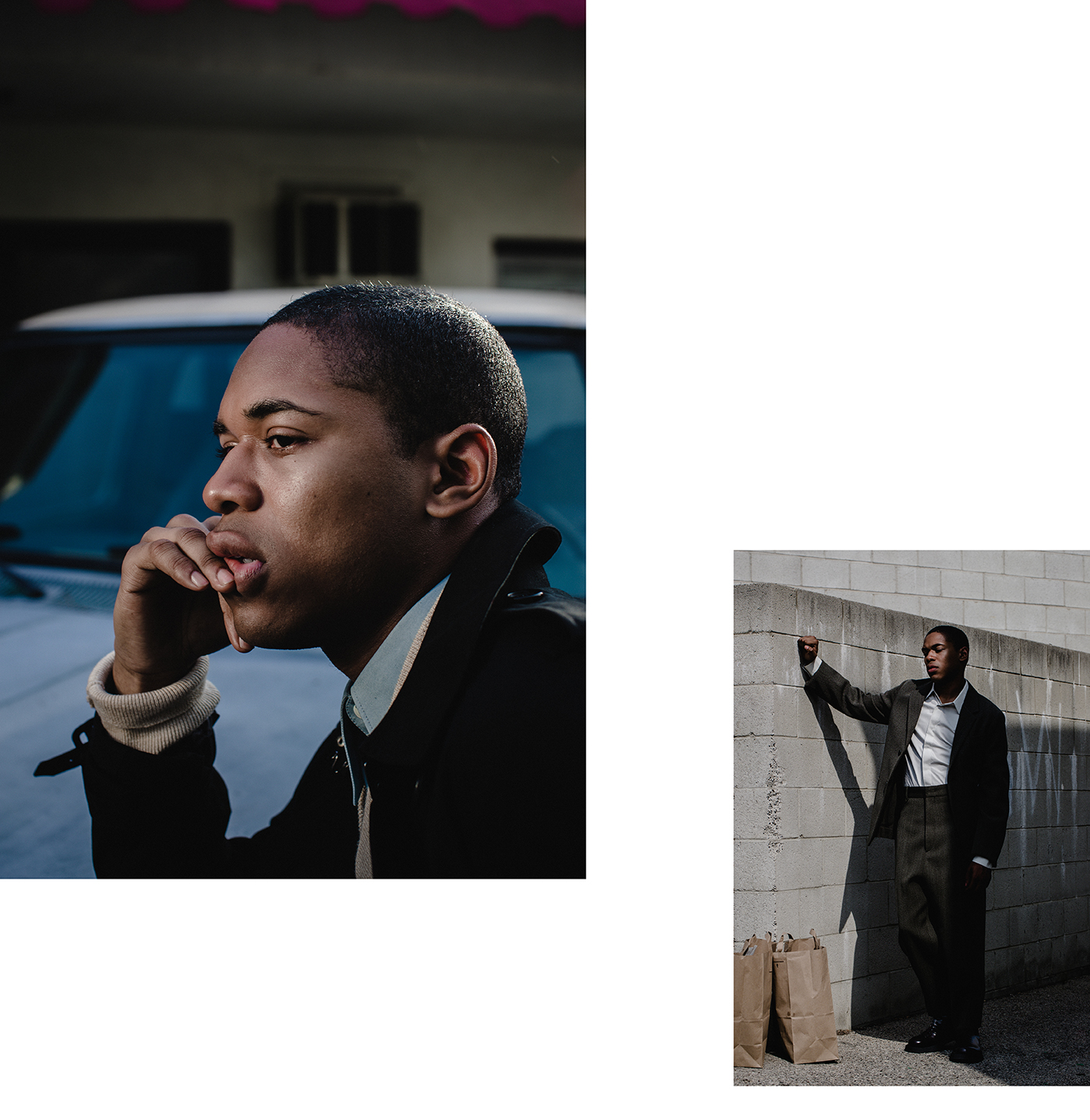
- By
- Gautam Balasundar
- Photography by
- Alex Antitch
Styling by Julie Ragolia at Lalaland Artists. Grooming by Mira Chai Hyde at The Wall Group. Photographer’s assistant: Fred Jacobs. Stylist’s assistant: Raina Silberstein.
